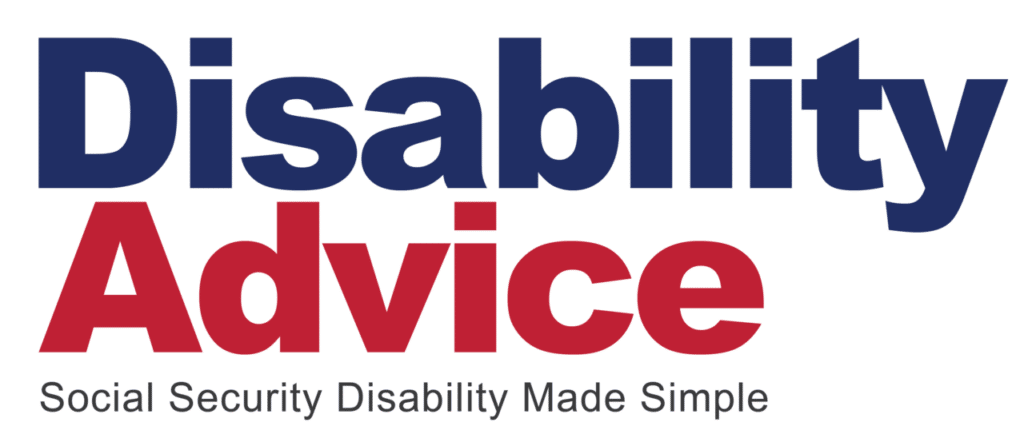
Written by:
Linda Cosme – Vice President of Disability Policy & Strategy, Citizens Disability
What Is a Social Security Disability Hearing?
Social Security Disability Insurance, or SSDI, provides financial assistance to millions of Americans who cannot work due to a disability. However, convincing the Social Security Administration that you qualify is rarely easy. The SSA denies many eligible SSDI applicants the benefits they need. In fact, 62 percent of applicants who meet the technical requirements for Social Security benefits initially receive denials.
Understanding the Social Security Disability Hearing Process
You worked hard for years and paid into the Social Security system. After an illness or injury that rendered you unable to work, you applied for Social Security Disability Insurance, or SSDI, benefits. However, the Social Security Administration has denied your claim.
Fortunately, you can file an SSDI appeal. The first step in this process is to request reconsideration. At this stage, your application will be reviewed by a different examiner and medical consultant, who can also consider any additional documentation you provide.
If the reconsideration process isn’t successful, the second step is to request a hearing before an Administrative Law Judge, or ALJ. A hearing may be necessary if the Social Security Administration has found insufficient grounds to approve your claim through the initial application or reconsideration process.
What Happens Before the Hearing?
The key to winning a disability hearing is preparation, adhering to the social security rulings, and proper representation. Before your SSDI hearing, thoroughly review your case file, gather and submit any new evidence that can help your case, and prepare to answer questions about how your medical condition limits your ability to work. If you don’t have representation, consider speaking with a knowledgeable SSDI appeals advocate.
Who Will Be Present at the Hearing?
While hearings are more relaxed than trials, they are still legal proceedings. You will testify under oath, and the hearing will be audio-recorded. Typically, the parties present include the ALJ, your attorney or representative, and witnesses such as medical and vocational experts.
Hearings take place via video or over the phone, although you can choose to have one in person.
When a Hearing Is Necessary
An SSDI appeal hearing becomes necessary if the Social Security Administration (SSA) denies both your initial application and your request for reconsideration. However, if both decisions conclude that your condition doesn’t meet the criteria for SSDI benefits, continuing with the appeals process may not be worthwhile. It’s best to consult with an experienced disability advocate to review your options and evaluate your chances of success.
Common Questions Asked at a Disability Hearing
Whether you’re anxious or curious about what’s going to happen at your Social Security Disability hearing, it is critical that you come prepared to participate. You will be sworn in as the claimant, and your representative may make an opening statement about your case and appeal. Your advocate may even file a memorandum with the ALJ about your case. This is referred to as an On-the-Record (OTR) review or brief requesting that the ALJ award your case. Primarily, the ALJ will question you about your qualifying medical conditions, work history, daily limitations, and functional capacity.
Medical Condition and Treatment Questions
When the judge questions you about your medical condition, you must answer clearly and truthfully. Here are likely questions a judge might ask during a disability hearing:
- When did your medical condition or symptoms begin?
- Can you describe your symptoms?
- Are you in pain? Can you rate your pain on a scale of 1 to 10?
- What medical treatment have you undergone for your condition?
- What are your physician’s recommendations for continued treatment? Are you following those recommendations?
- Do you take medications? Are there any side effects?
- Do you require assistance with daily activities such as bathing, dressing, cleaning, and cooking?
While some of these questions may seem personal and repetitive considering the documentation you’ve provided, answer fully and honestly. If your condition waxes and wanes, where you have good days mixed with bad ones, be ready to describe the episodic nature of your conditions.
Work History and Functional Limitations
The ALJ also will ask about your limitations and work history. This information is relevant because your past work experience and current ability to perform certain tasks will factor in the agency’s decision on disability status. Related questions you might face include:
- Are you currently working?
- Have you worked or attempted to work since your condition started?
- What was the last job you had before you became disabled? Describe your job duties.
- How much can you carry or lift?
- How long can you stand or sit at work?
- What other jobs or careers have you had in the past?
- What level of vocational training or education do you have?
Note that even if you receive SSDI benefits, you may be able to work in a very limited capacity if you meet certain requirements.
How To Strengthen Your Case at a Disability Hearing
The SSDI hearing process might feel intimidating, particularly when you are unfamiliar with it. However, certain strategies can improve your odds of a favorable outcome. The first is to come prepared to answer the ALJ’s questions about your medical condition, disability, and work history.
Your attorney or representative can provide comprehensive assistance in creating a strong SSDI application and helping you make a compelling case at a hearing. For example, your lawyer can draft a brief or memorandum, collect supporting statements from doctors, and cross-examine witnesses and experts during the hearing.
Having documents and witnesses is only part of building a successful case. An experienced attorney or advocate plays a crucial role in presenting your evidence in a way that clearly supports your disability claim—demonstrating not just that you’re impaired, but how your condition truly limits your ability to work and manage daily life. With the right representation, your story is told with clarity and impact, giving you the best chance at a favorable outcome.
What Happens After the Disability Hearing?
The average disability benefits decision appeals time nationwide is 284 days, but that includes the time you’ll have to wait for the hearing after requesting it. Generally, the ALJ will mail you their decision within 30-60 days of your appeal hearing.
Several things can happen with the decision. The judge can approve your claim, meaning you’ll receive SSDI benefits. If the judge remands your case, which is rare at the hearing level, this means the ALJ is sending the case back to the state Disability Determination Services or the Field office for additional information before making a decision.
The ALJ also can deny your disability claim. If they do this and you wish to appeal the decision to the Appeals Council, you have 60 days from receipt of the notice to file your Request for Review.. If the Appeals Council’s decision is unfavorable, you can appeal and file a complaint or civil action in federal court.
What Is the Success Rate of a Disability Hearing?
According to the SSA’s latest data, ALJs approve disability benefits in about 46 percent of hearings—one of the best approval rates of any stage in the SSDI process.
However, approval rates can vary widely among different offices and ALJs. Whatever office you are working with, an experienced disability advocate or attorney will guide you through the complex appeals process, and increase your chances of success.
Disability Advice Is Here To Help
If you’re applying for SSDI benefits, you already have enough hardships on your plate. You shouldn’t have to manage the SSDI appeal process alone. A Social Security Disability appeal attorney or representative can answer your disability hearing questions and help you challenge your SSDI benefits denial. They’ll collect the evidence necessary to build a strong appeal and represent your interests at your upcoming hearing.
Disability Advice can connect you with an experienced attorney or advocate who can improve your chances of a successful outcome. Improve the likelihood of receiving the SSDI benefits approval you need and deserve. Contact us today to schedule a free consultation.
- Free case evaluation
- Assist with denied claims
- Ensure you have all documents
- Make the process easy for you

Written by:
Linda Cosme – Vice President of Disability Policy & Strategy, Citizens Disability
- Understanding the Social Security Disability Hearing Process
- When a Hearing Is Necessary
- Common Questions Asked at a Disability Hearing
- How To Strengthen Your Case at a Disability Hearing
- What Happens After the Disability Hearing?
- What Is the Success Rate of a Disability Hearing?
- Disability Advice Is Here To Help

“Professionalism at its best. From intake to getting my claim started, they are the ones you need. 100% recommend to everyone.”
Pablo P.

“Having never gone through this process before, it was very easy and straightforward. VERY professional and polite.”
Alan A.

“I had a great experience with my representative. She was very friendly and she made the process very easy. I’m glad I had the pleasure to work with her in filing my claim. She provided great customer service.”
Dana C.

“I was very nervous about reaching out for help with disability benefits. This experience was so much easier than what I thought it would be. They were understanding and supportive, and answered all of my questions. I would highly recommend them.”
Alice P.

“One of the best customer service experiences I have ever had. Patient and kind and couldn’t of made my experience better. Thank you for all the help.”
Jama M.

“I was very pleased and impressed by the advocate. I feel that my chances of receiving my disability benefits are more likely to come in a timely manner.”
Danny C.
Fill in the form below and let us know how we can help you!
"*" indicates required fields

“Professionalism at its best. From intake to getting my claim started, they are the ones you need. 100% recommend to everyone.”
Pablo P.

“Having never gone through this process before, it was very easy and straightforward. VERY professional and polite.”
Alan A.

“I had a great experience with my representative. She was very friendly and she made the process very easy. I’m glad I had the pleasure to work with her in filing my claim. She provided great customer service.”
Dana C.

“I was very nervous about reaching out for help with disability benefits. This experience was so much easier than what I thought it would be. They were understanding and supportive, and answered all of my questions. I would highly recommend them.”
Alice P.

“One of the best customer service experiences I have ever had. Patient and kind and couldn’t of made my experience better. Thank you for all the help.”
Jama M.

“The person I spoke with was very knowledgeable and very thorough with answering all of my questions and making sure all my information was correct. He was very patient, kind, and was very helpful. I wasn’t sure if I would qualify, and he checked and took all of my information. The process was made very easy, thank you so much for your help.”
Patrice I.

